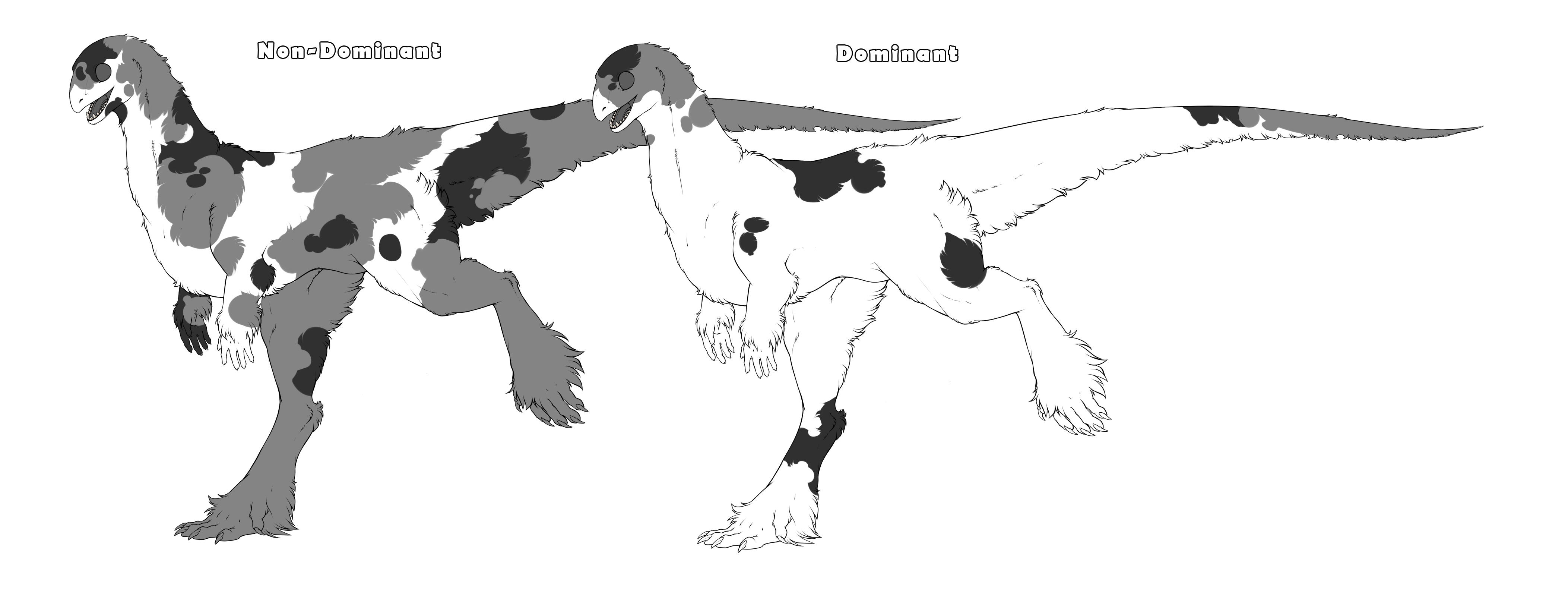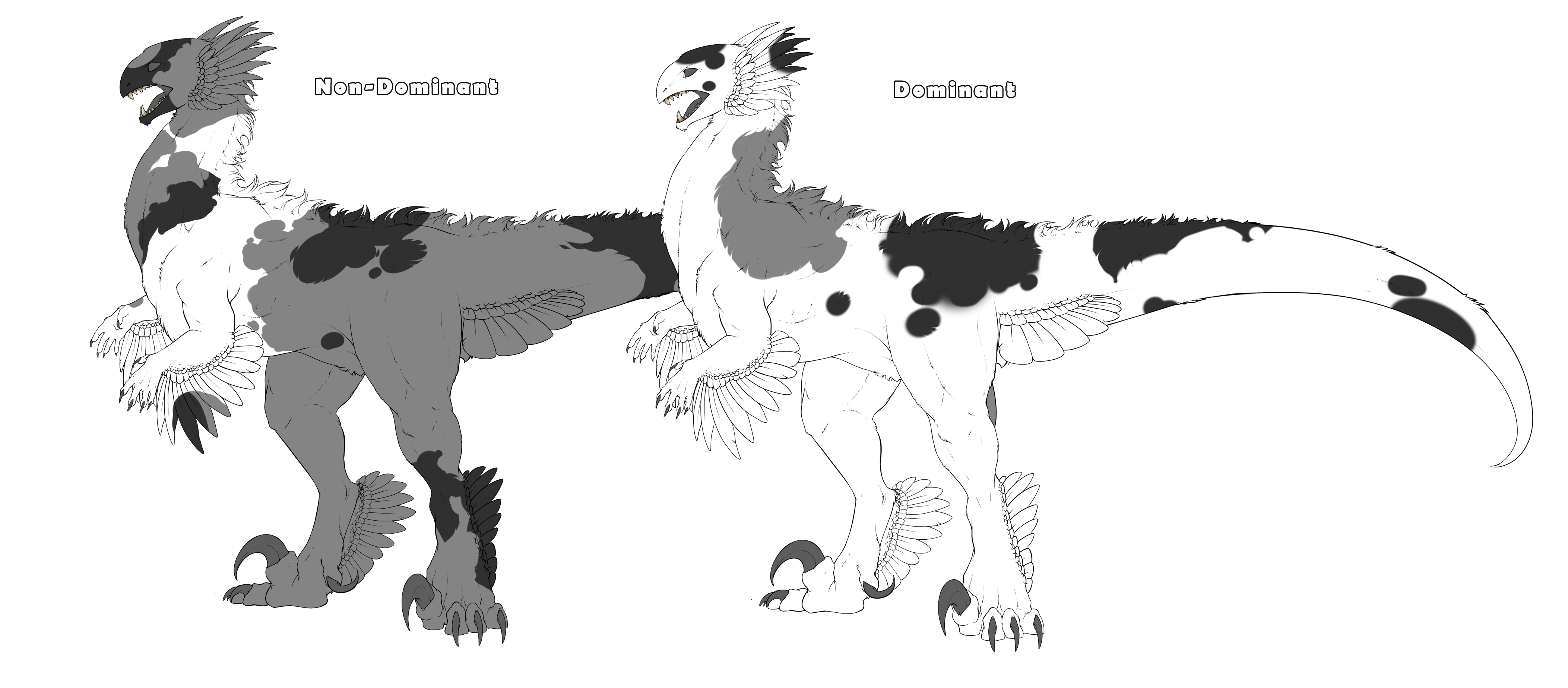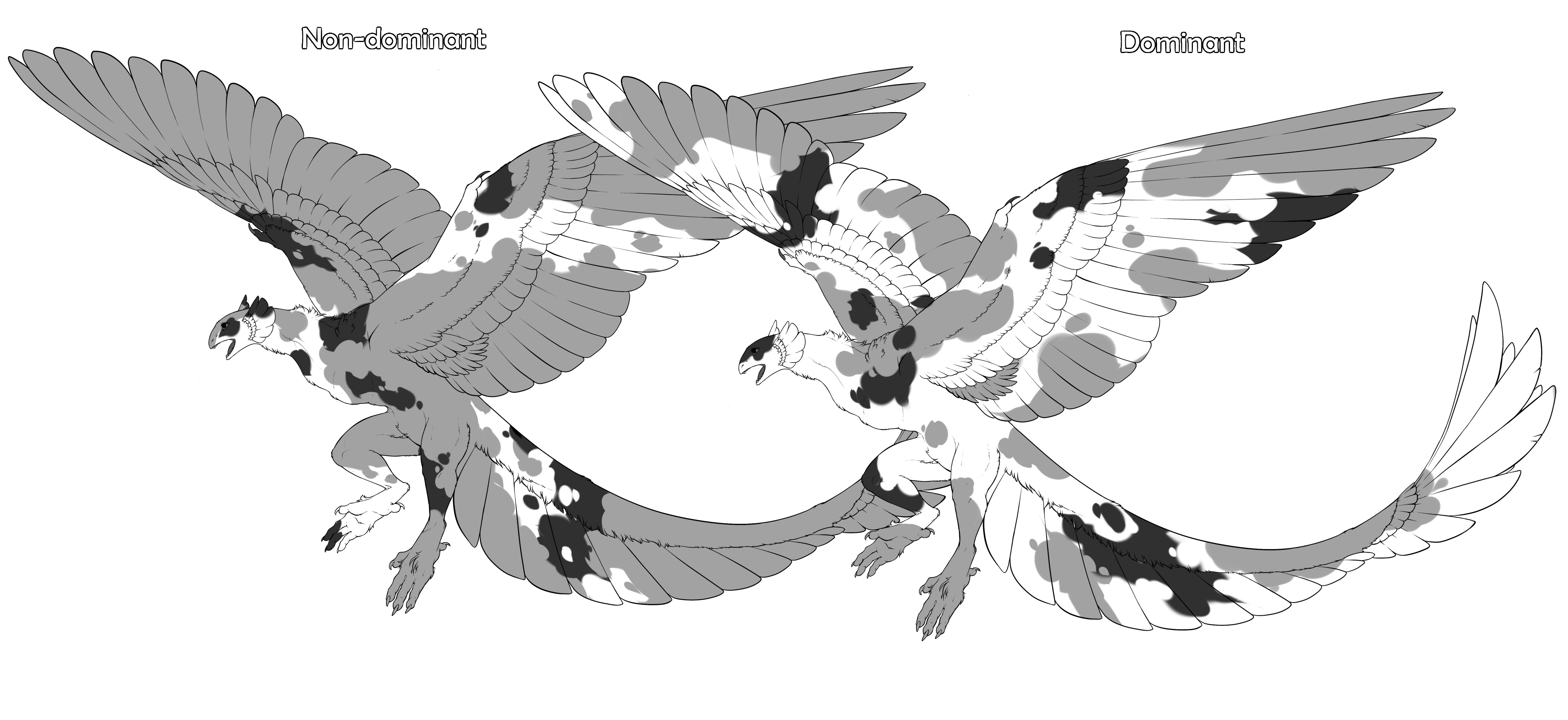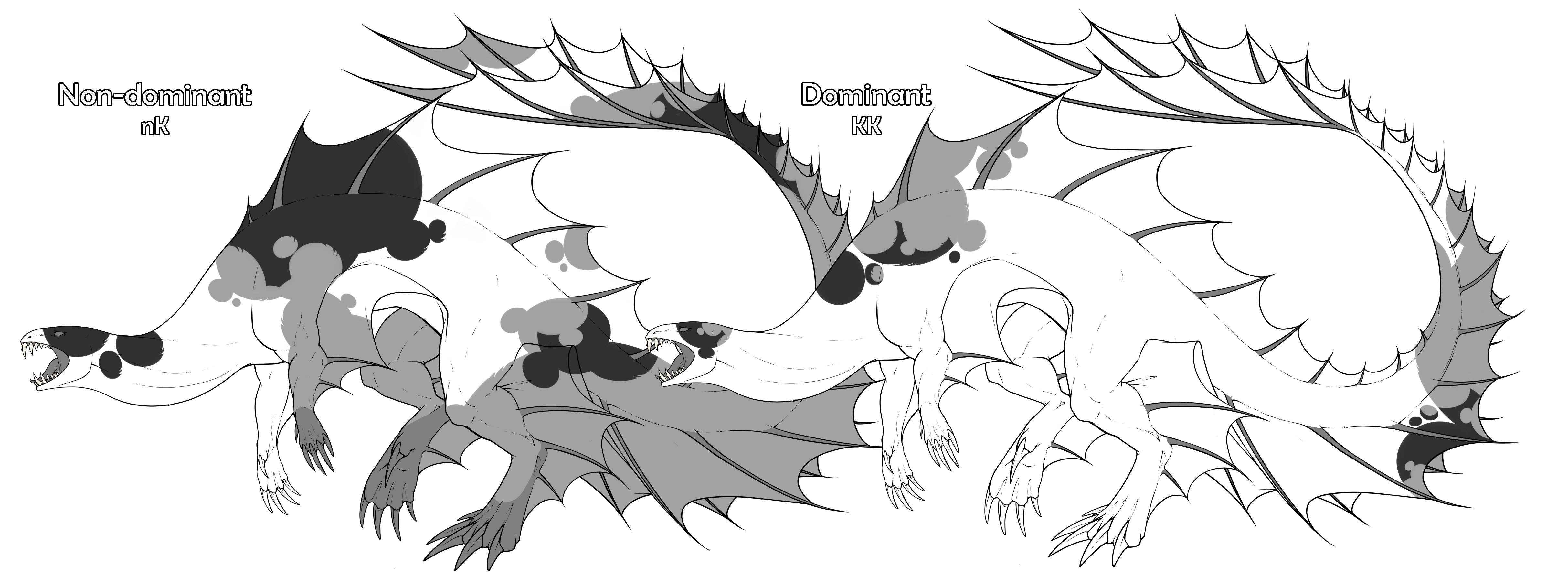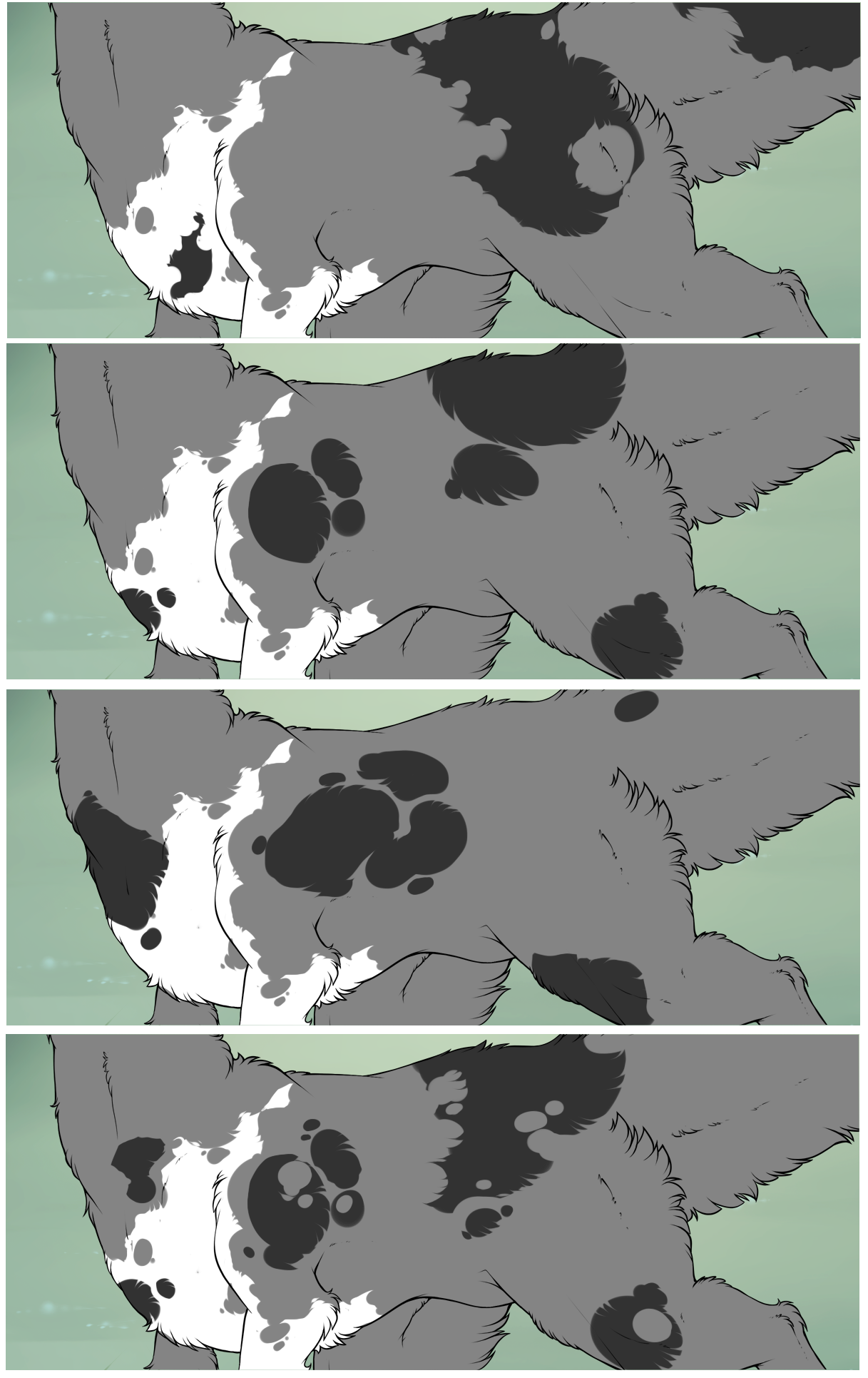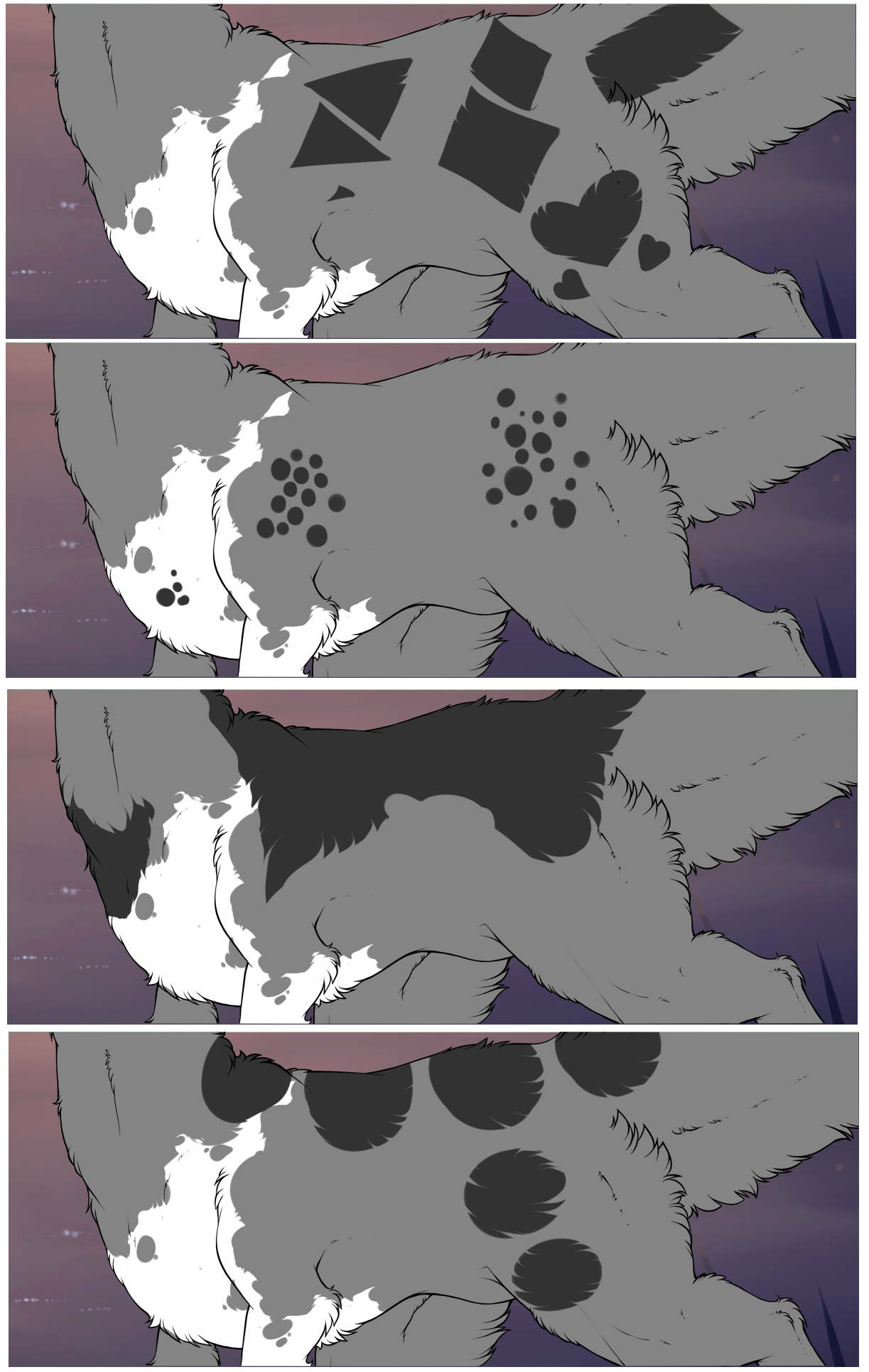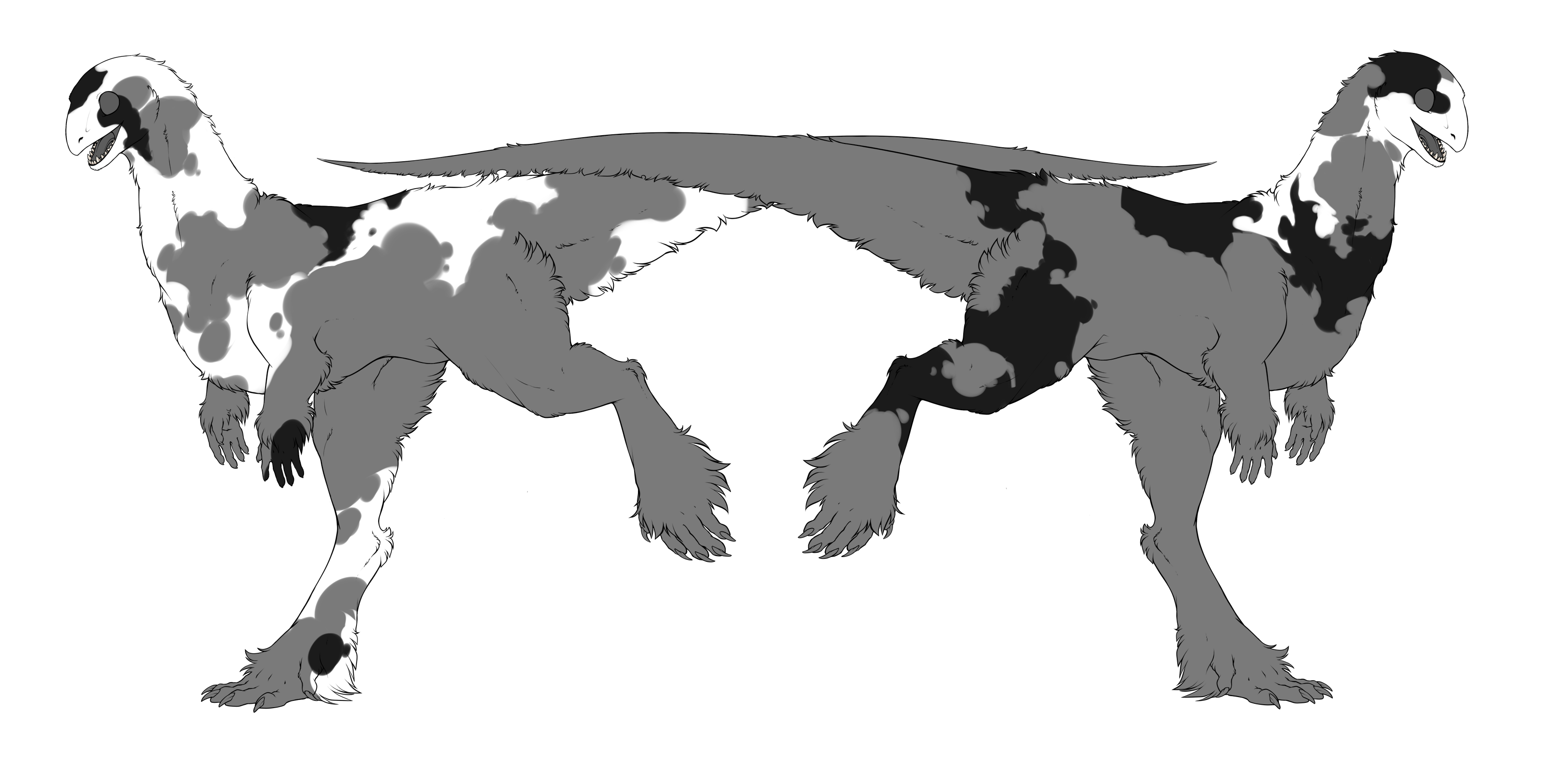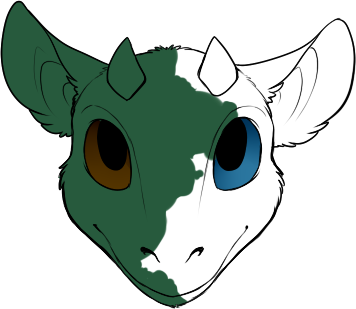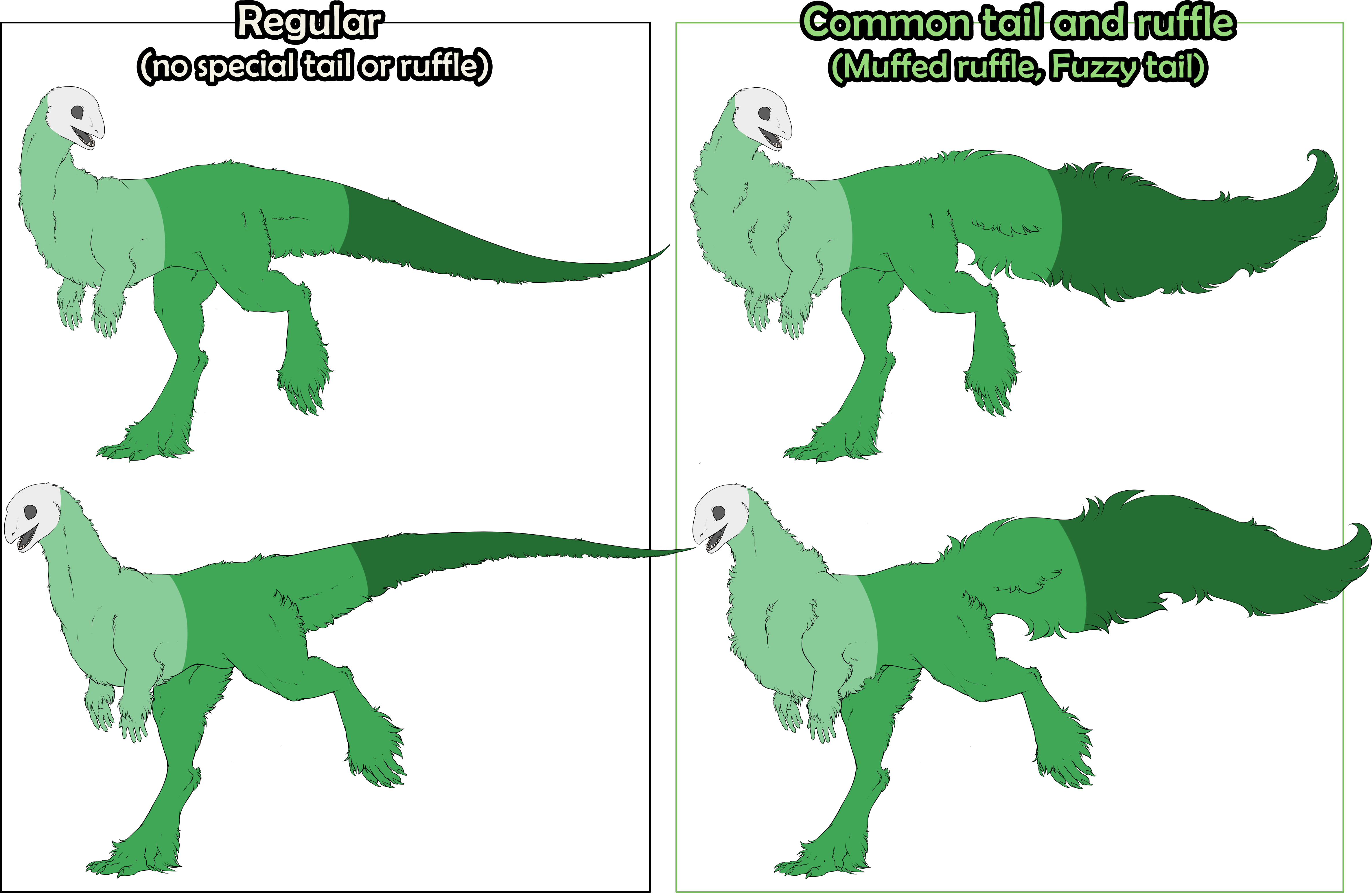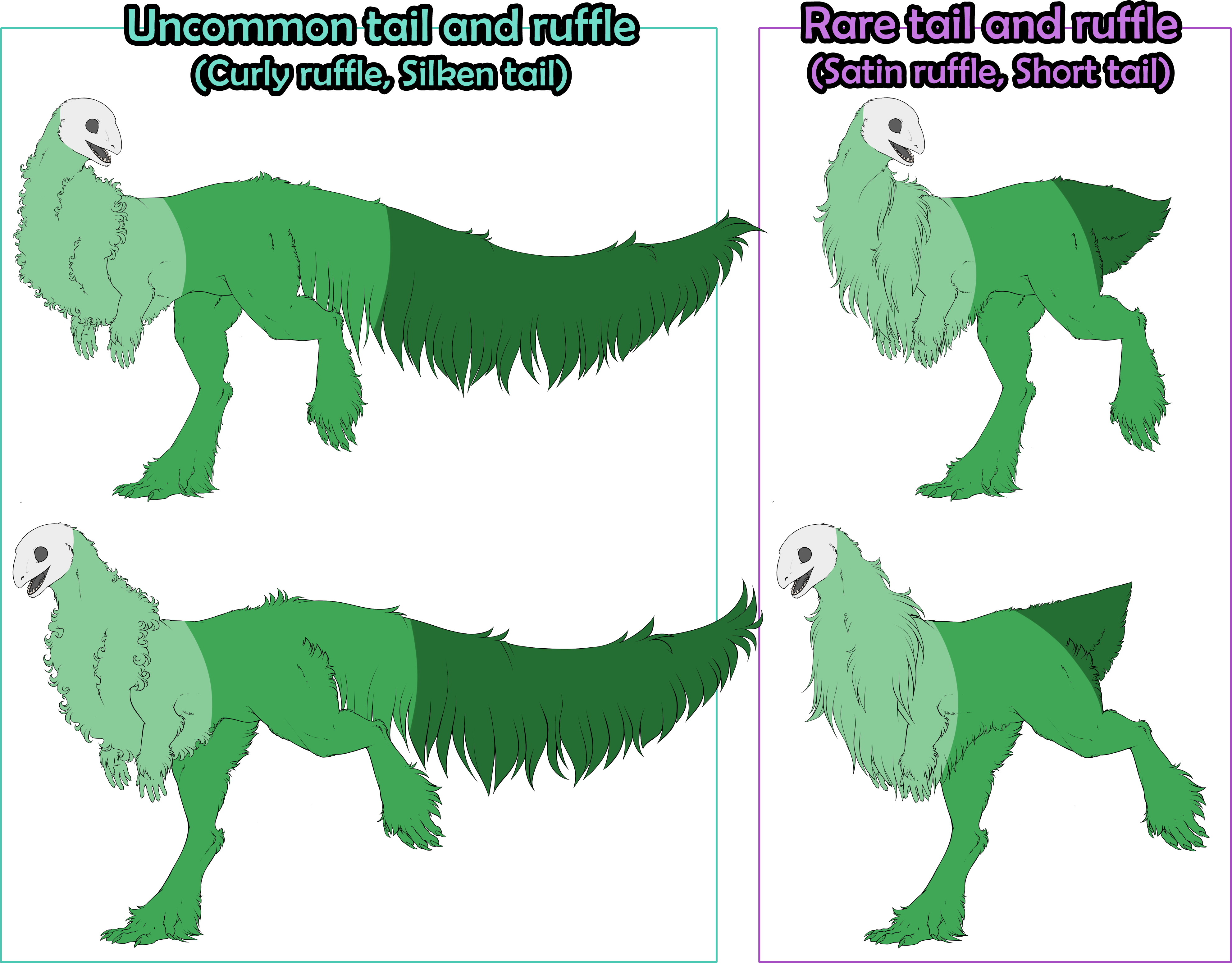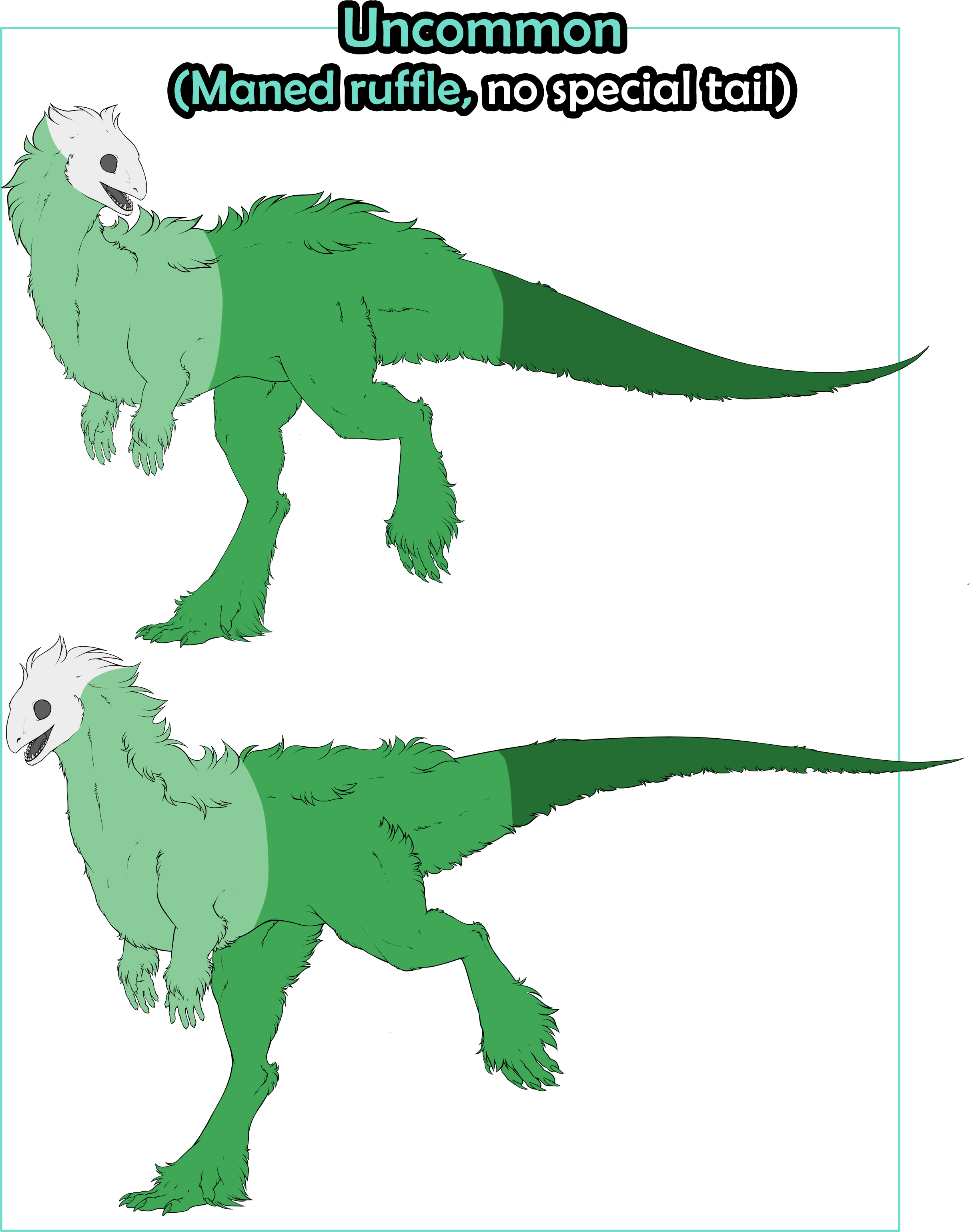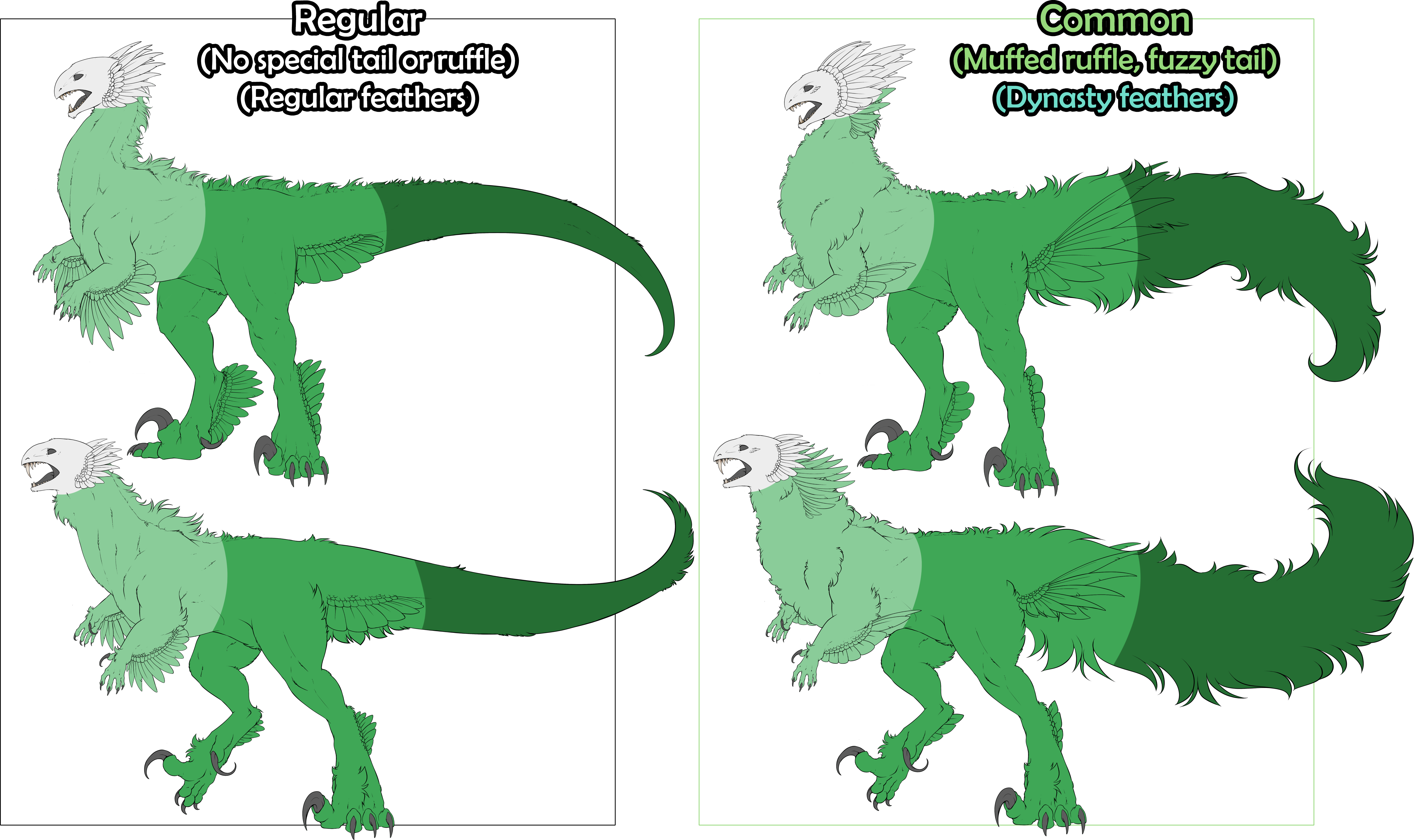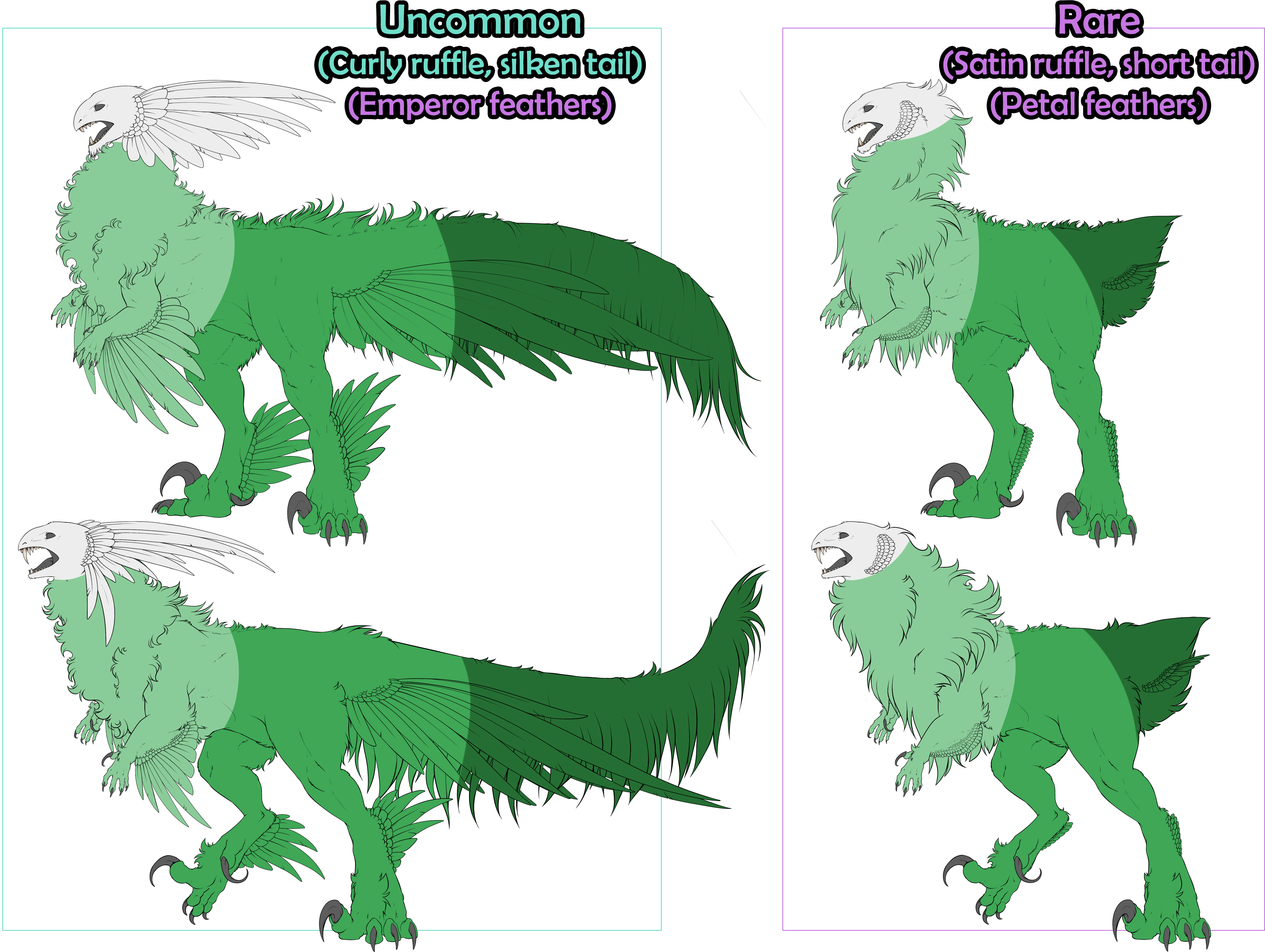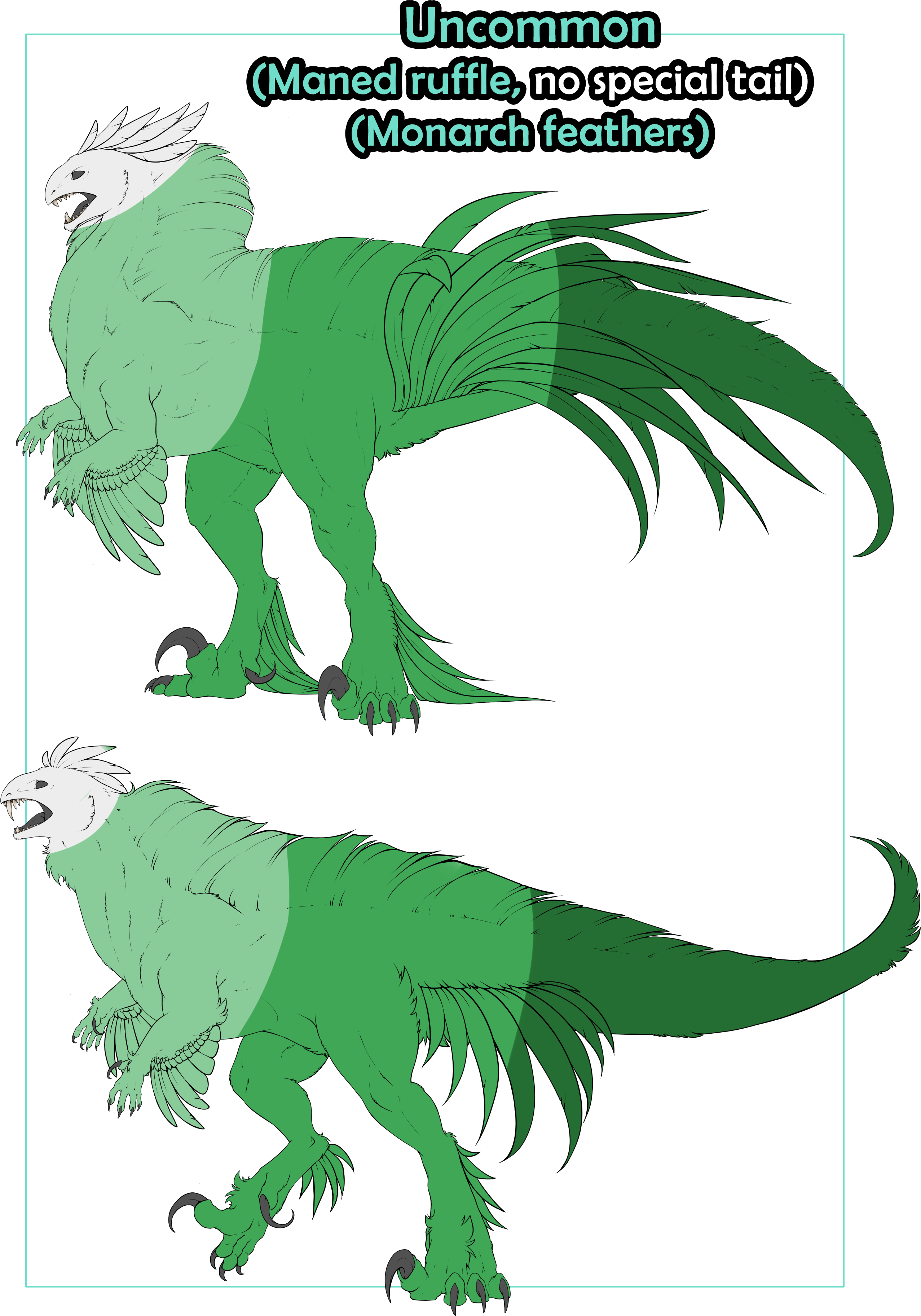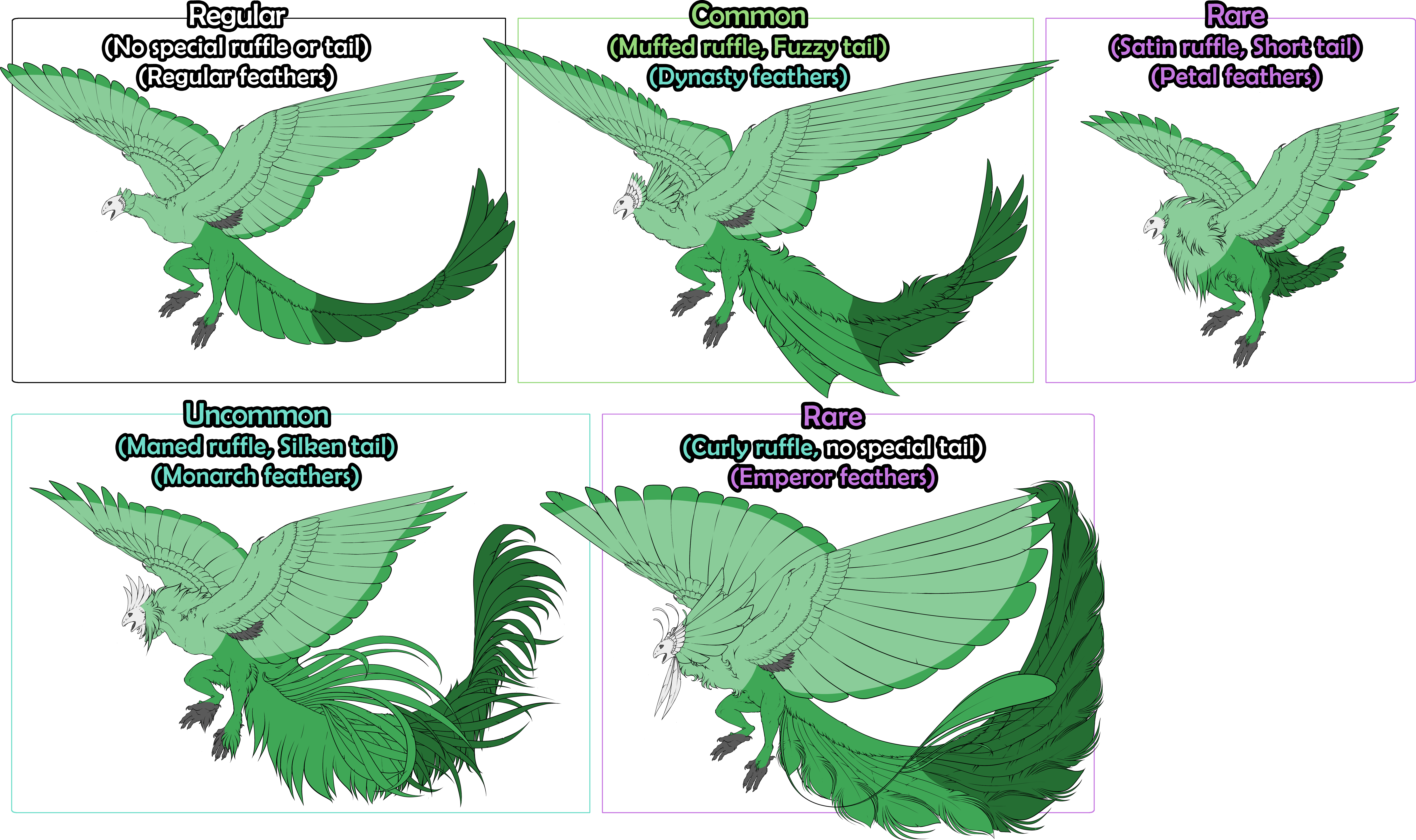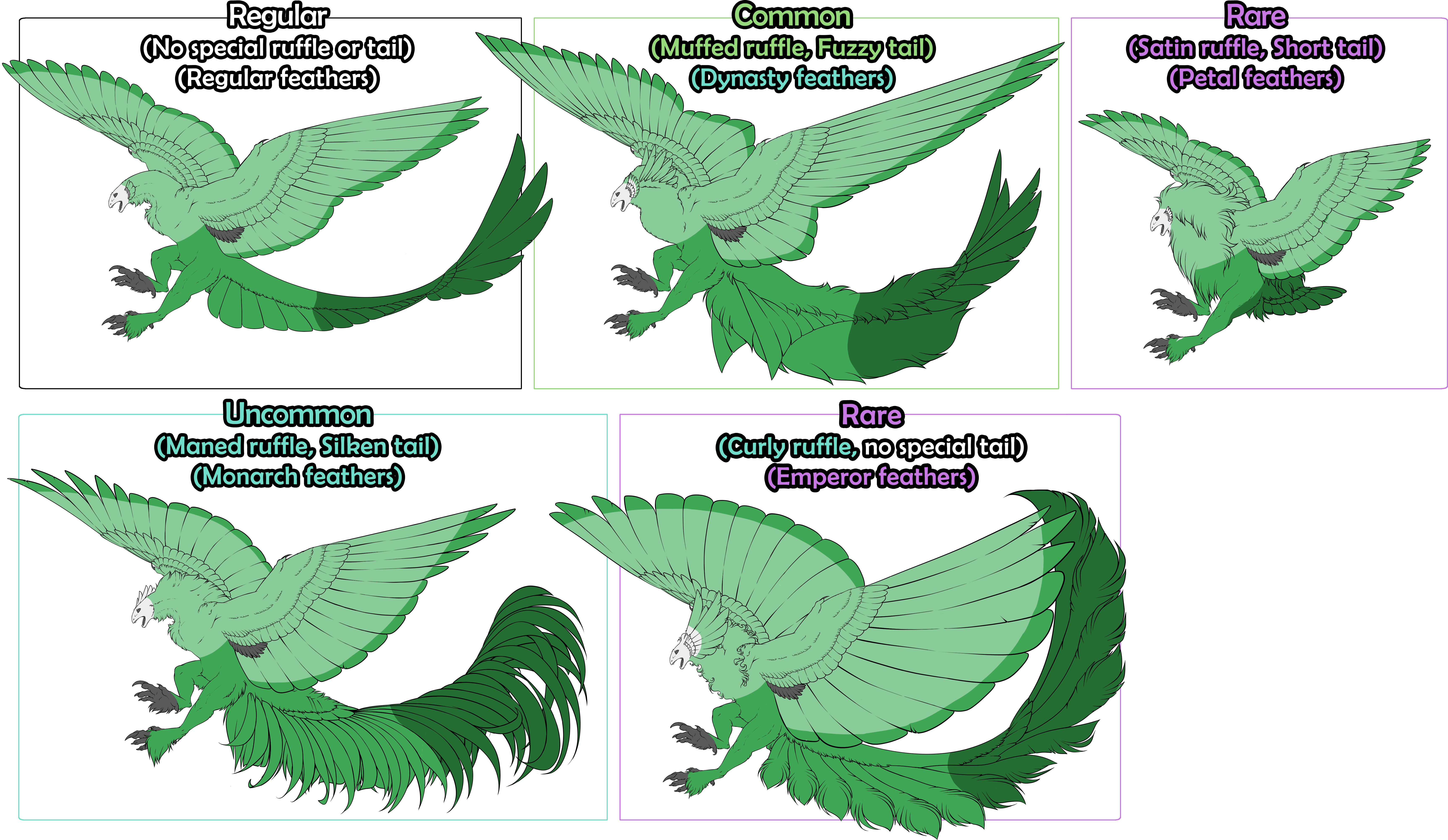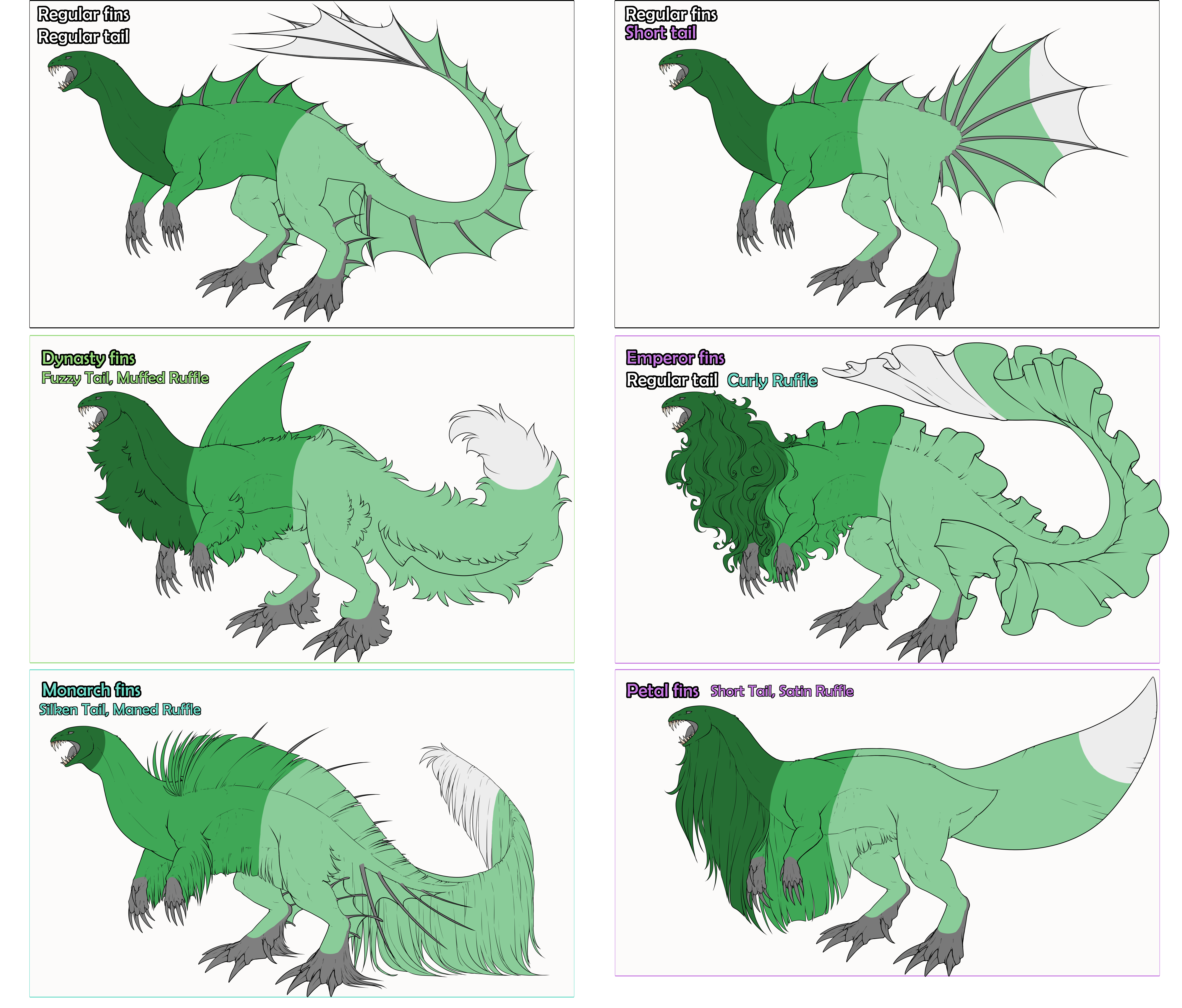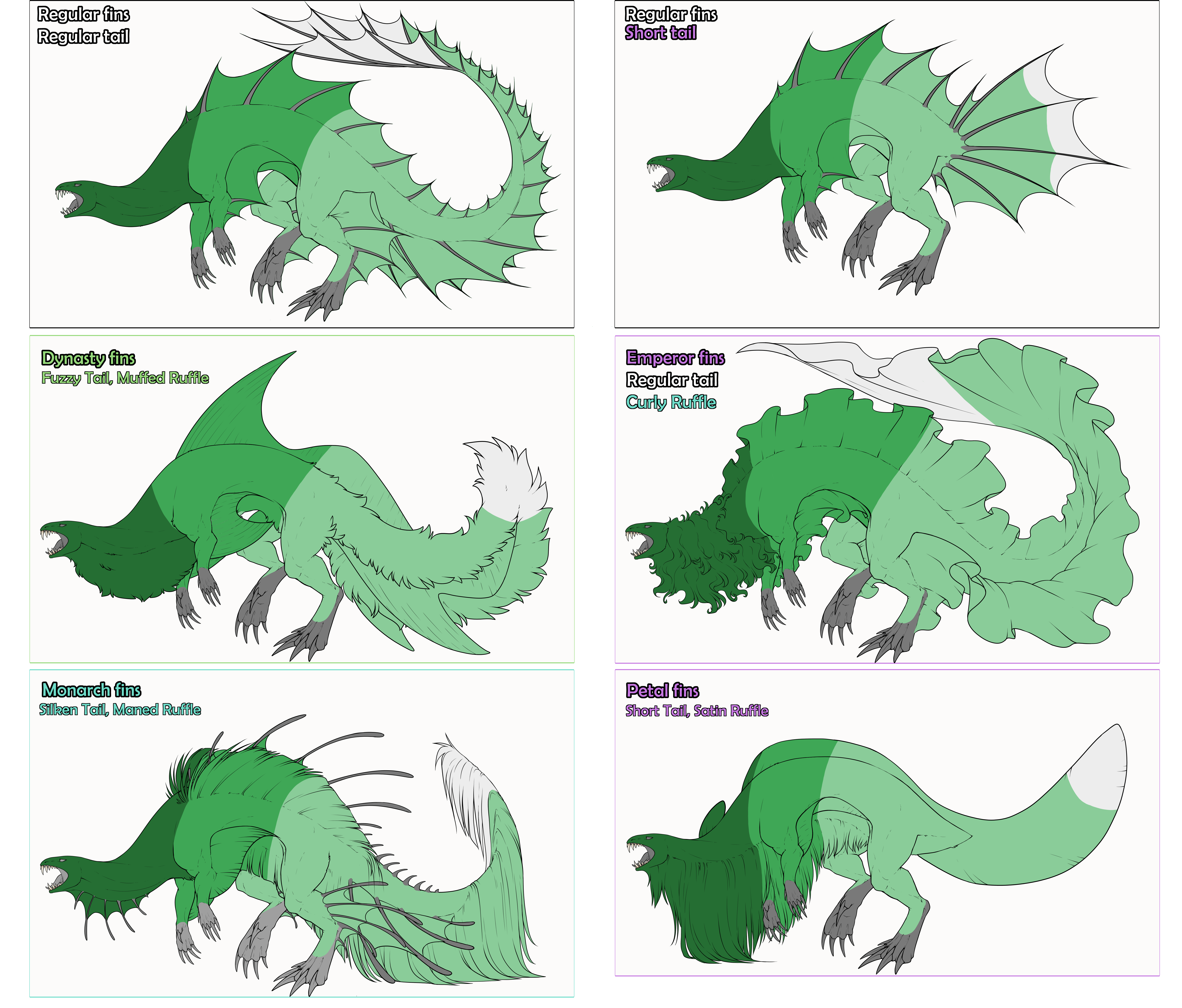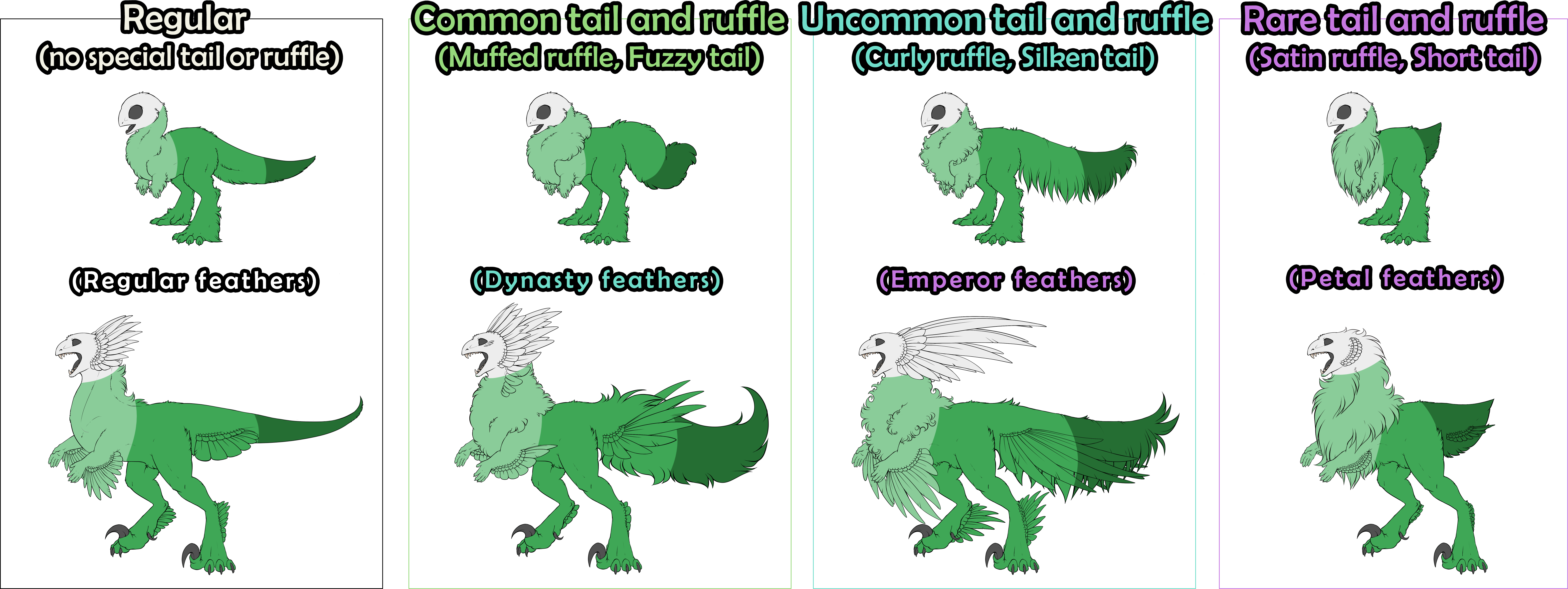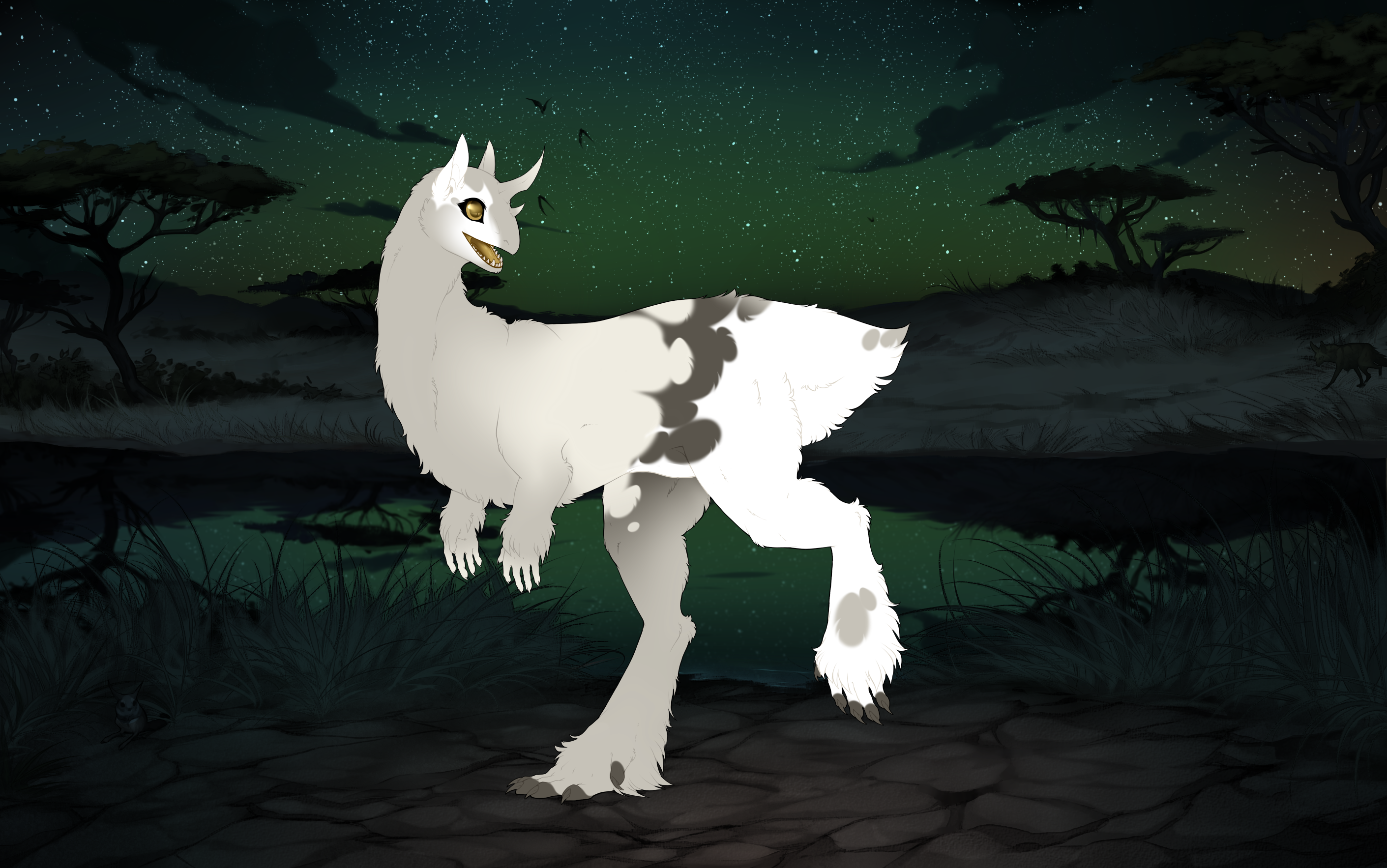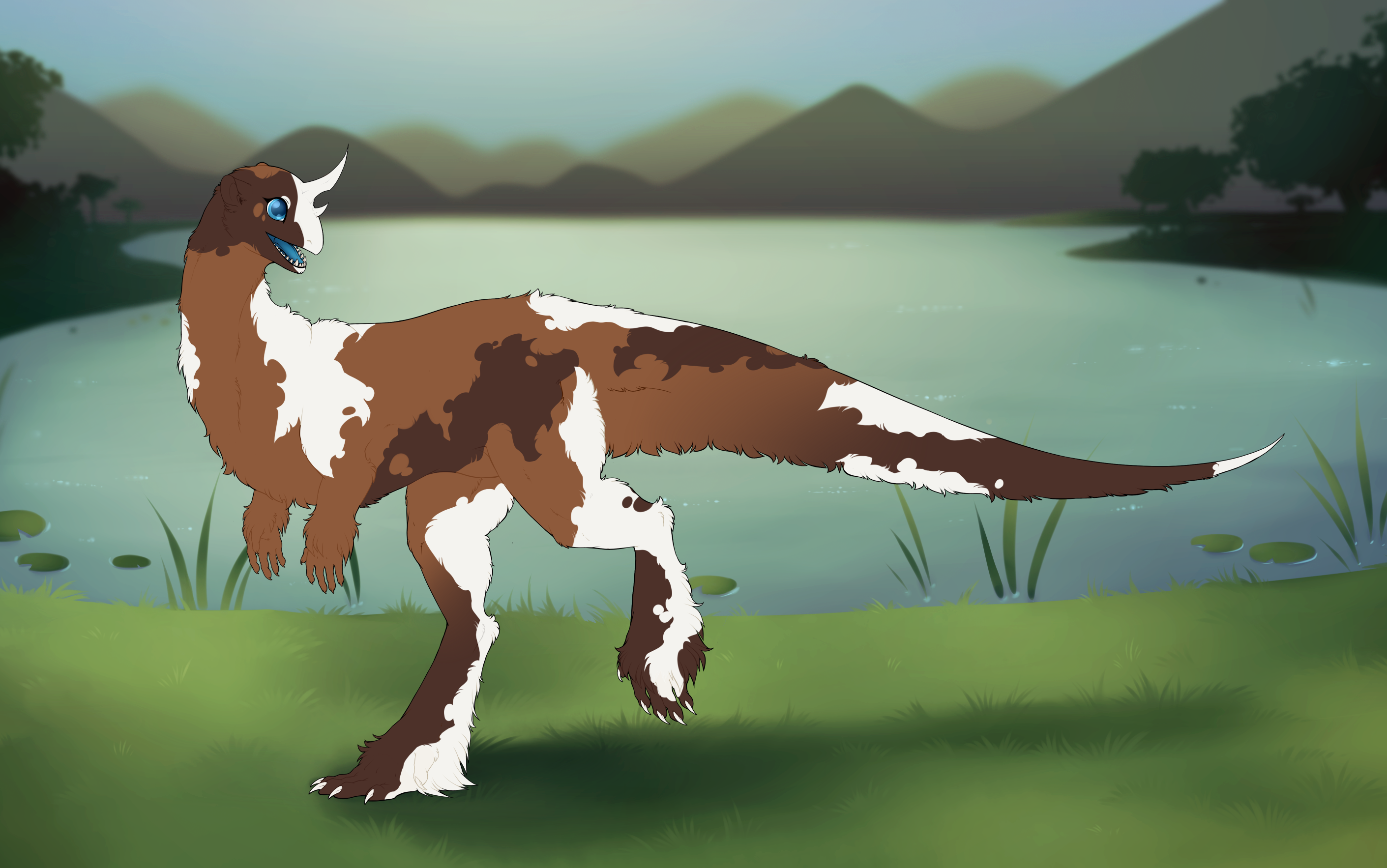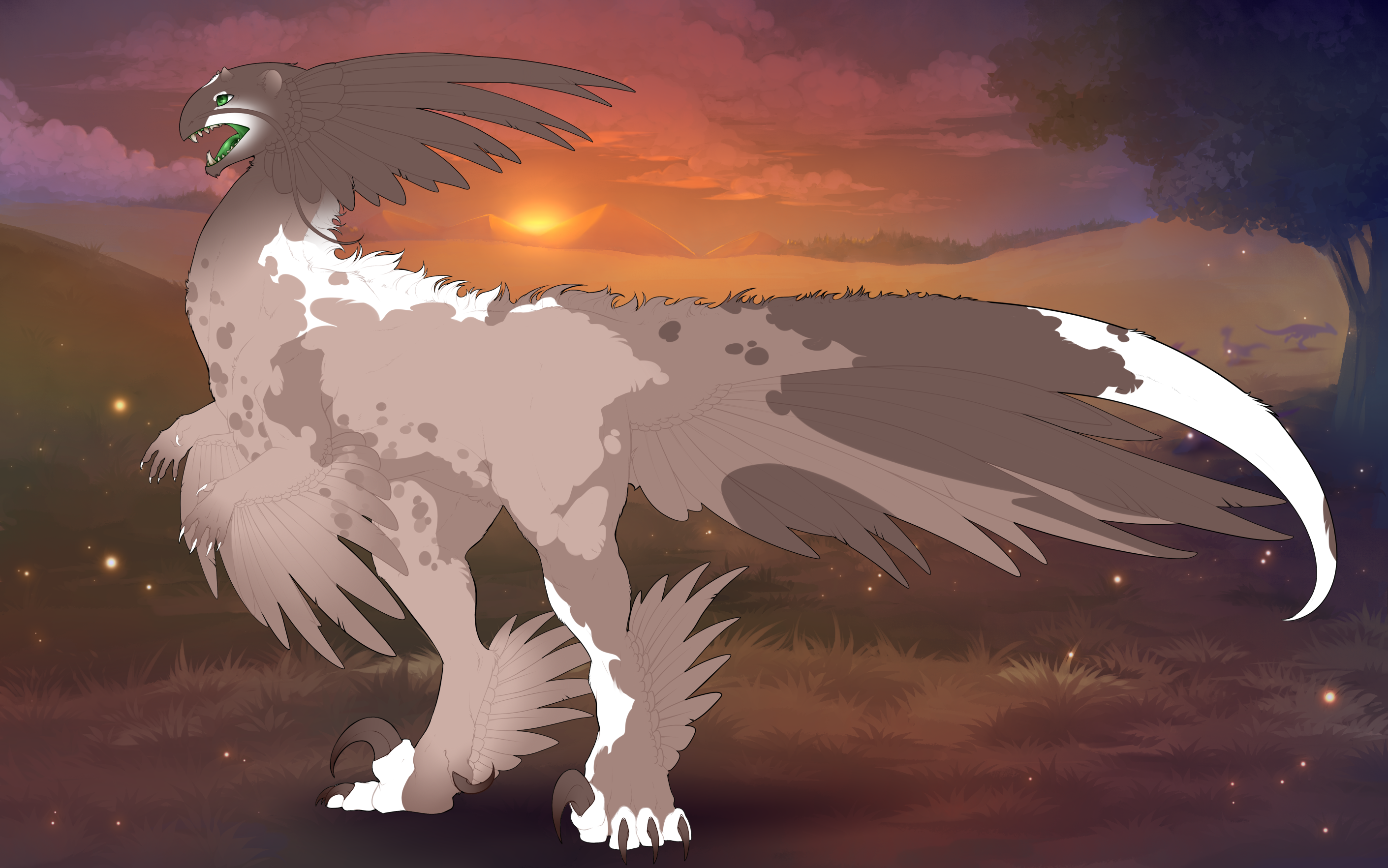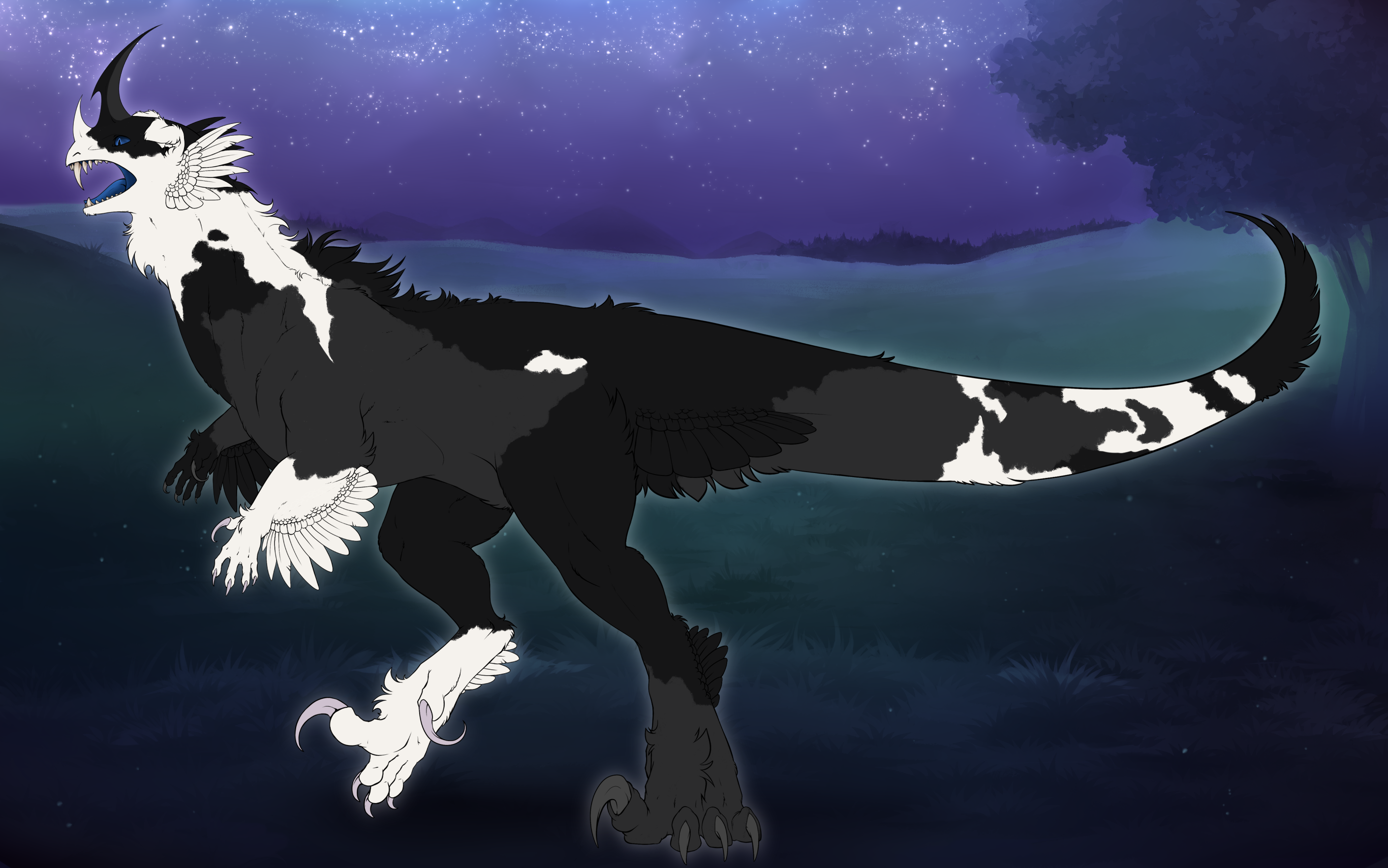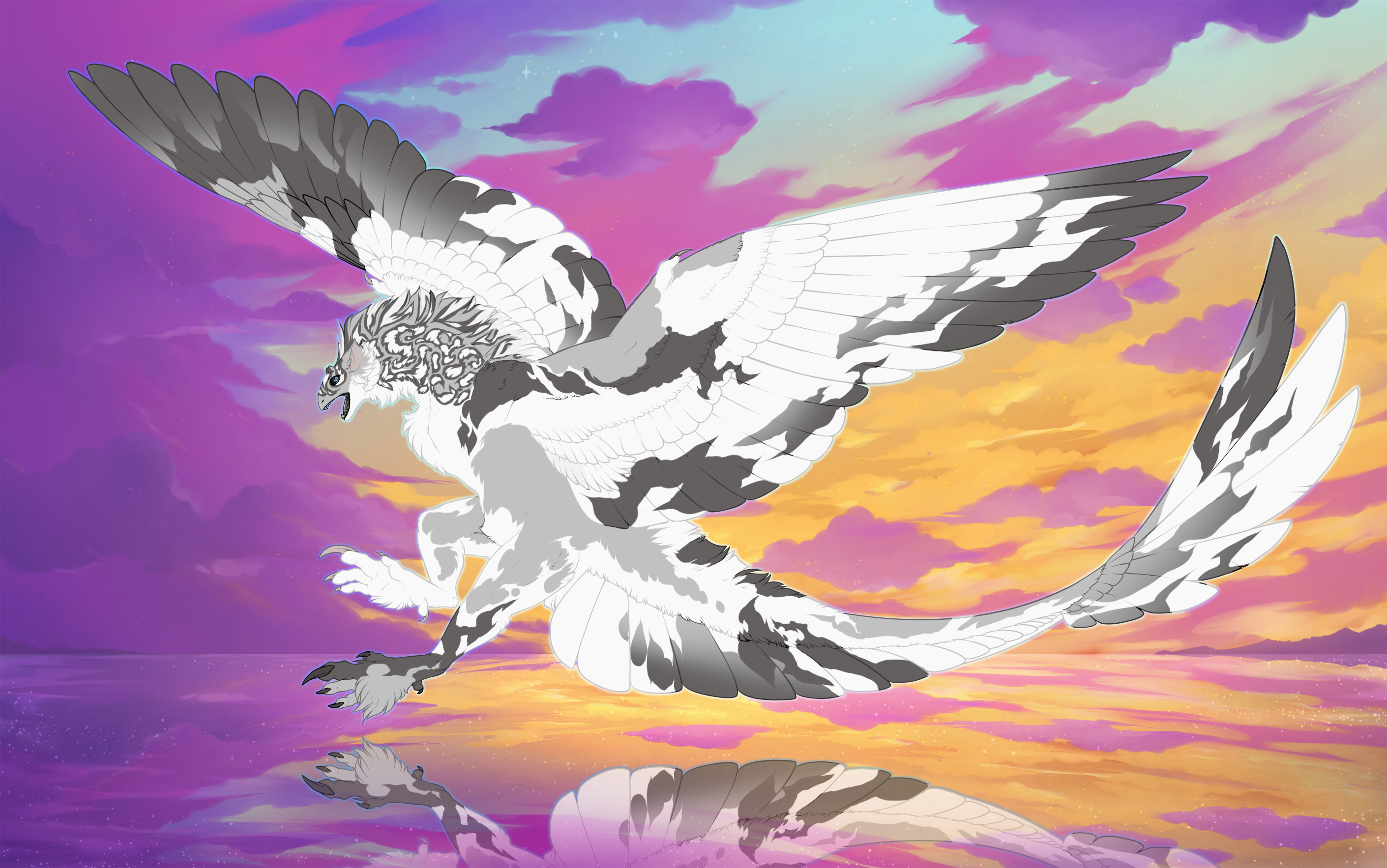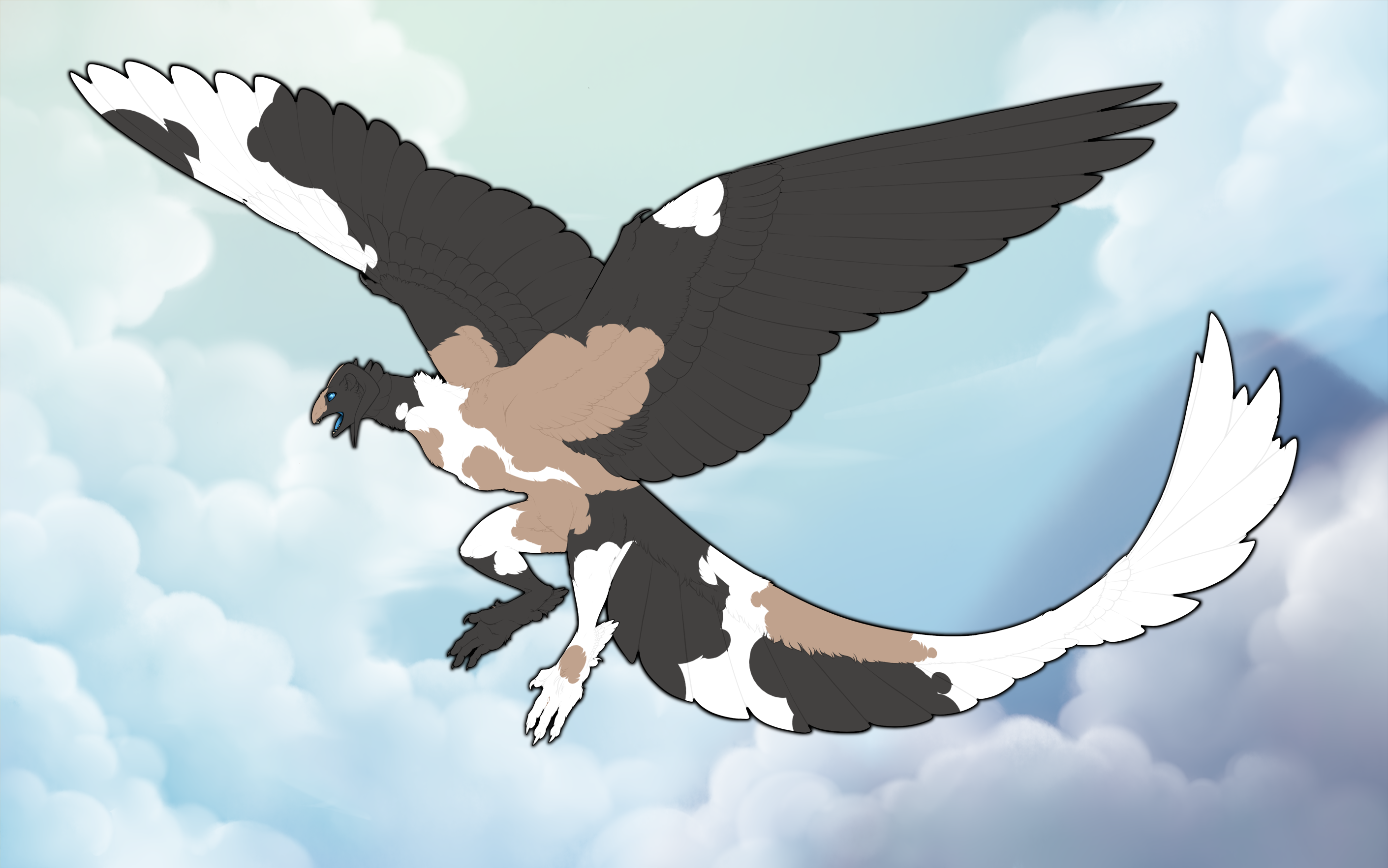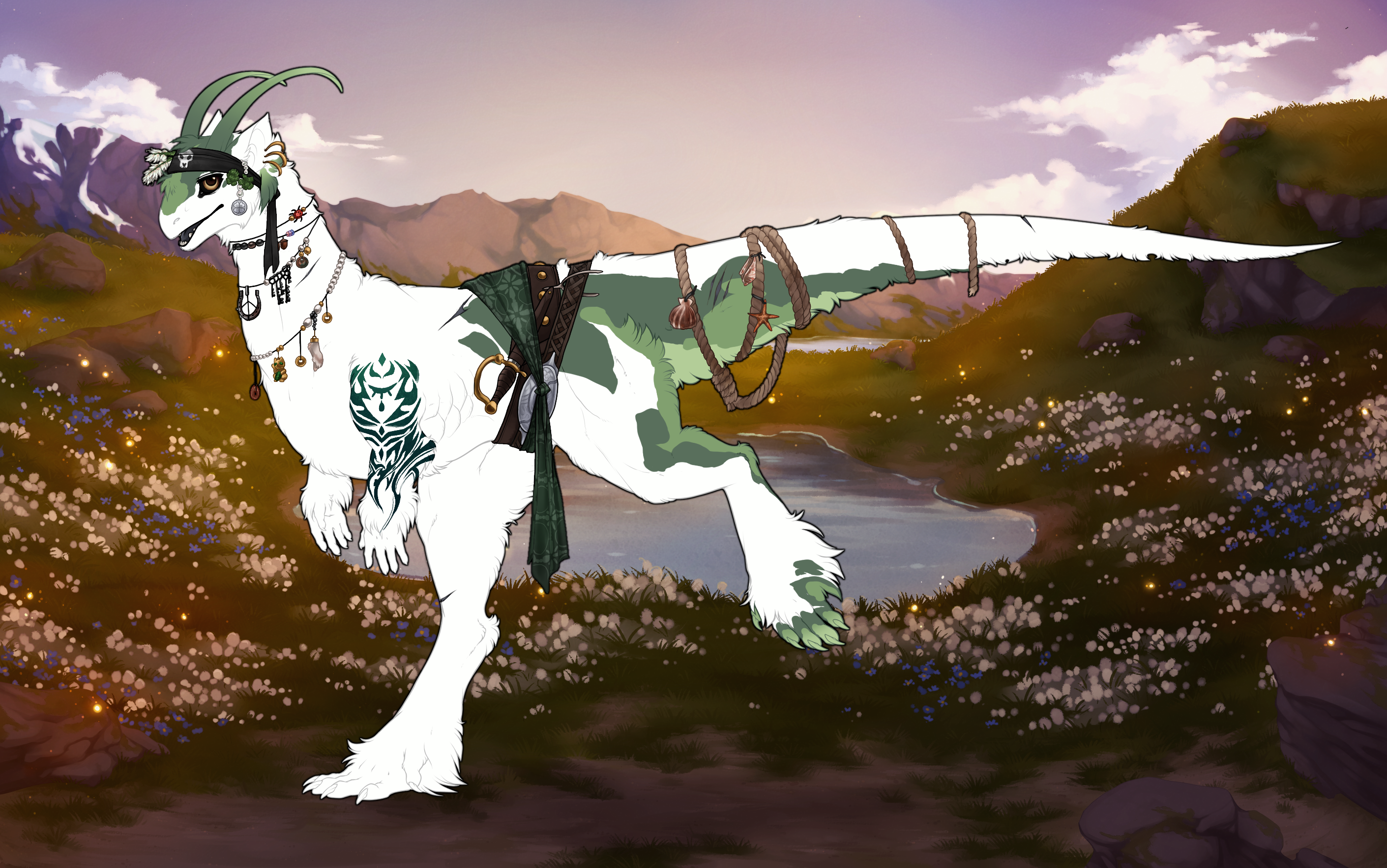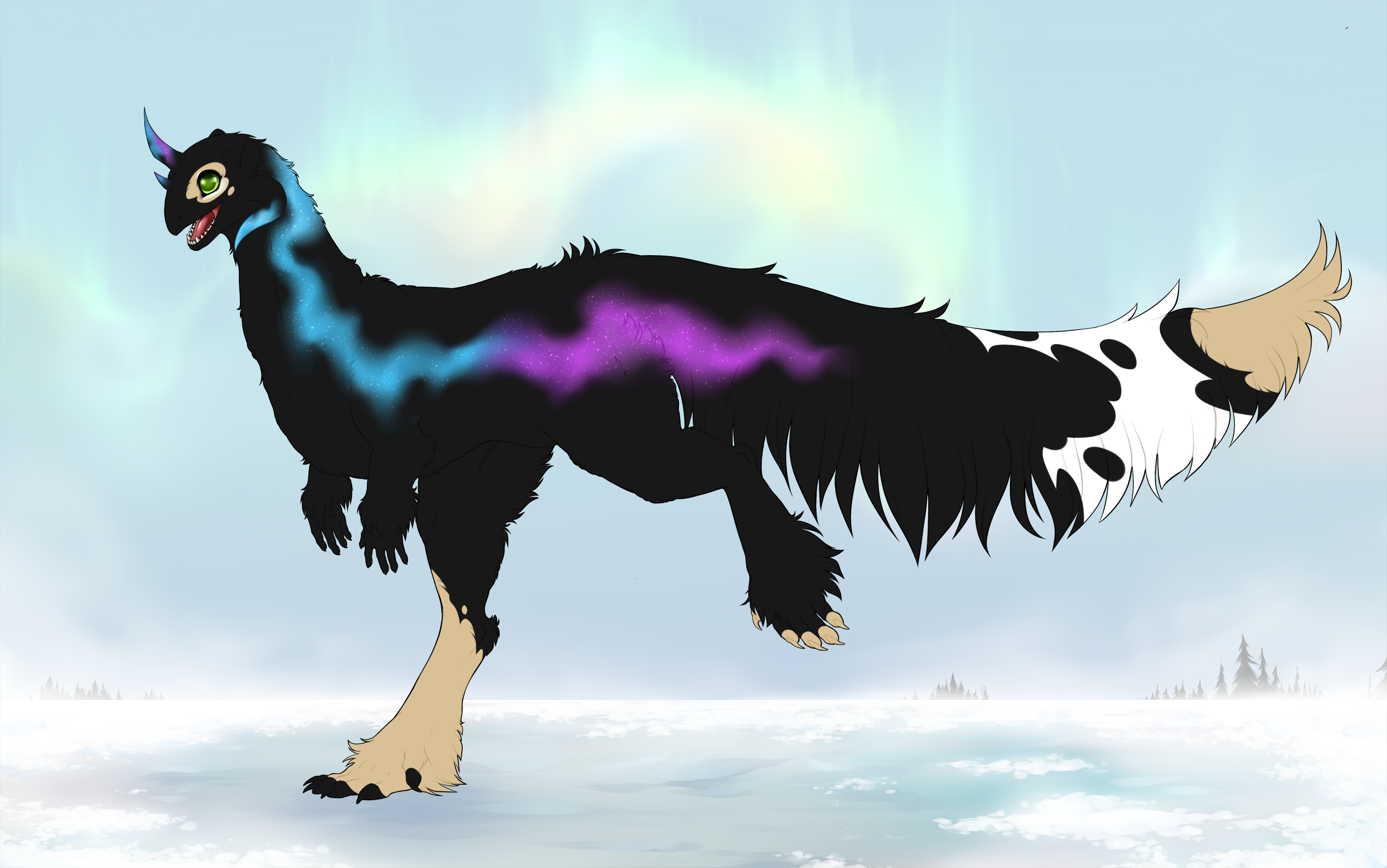Edge allowances
 Hard
Hard Soft
Soft Textured
TexturedSymmetry allowances
 Dark koi may be symmetrical
Dark koi may be symmetrical White koi must be, dark koi may be asymmetrical
White koi must be, dark koi may be asymmetricalWhite layer must be:
 Must be white
Must be whiteDark layer must be:
 Must be darker
Must be darker
A Guide to Koi
Koi edges
Koi can have hard, soft, or textured edges, it may also have fur texturing. However these edge types should not be mixed, nor should they be too extreme! ✔
✔

Koi shapes
While the white layers needs to be Piebald in appearance, the dark layer can take on many different shapes. This includes blotches, another Piebald-like shape, patches, etc etc. Below are some correct examples and some incorrect examples!
White and Dark split
Koi does not need to be a perfect split of both the white and dark colors! It can be majority dark if you want. As long
as a bit of both are showing, you can split the amount however you wish! But note that you can not go over the allowed
coverage. More white means you have less room for more dark.
Koi AND HETEROCHROMIA
Koi can create heterochromic eyes almost the same way as the mutation does, but it is not inheritable to any offspring.
This doesn't act like real life piebald or pinto, it does not change the eyes blue. It takes the colors from the parents only,
unless the parents are albinos (in which case you can use grandparent's colors).
Heterochromia can only appear when the white area covers one of the eyes, and not the other. Partial heterochromia is not allowed for Koi.
Also unlike heterochromia mutation, Koi can not make the eyes have different colored scleras.
If a kukuri has both Koi and heterochromia, one eye may be affected by Koi (one color) and the other may be
affected by heterochromia (two colors), for 3 total eye colors. There may not be three colors in one or both
eyes!
KOI AND MOUTHS
Where Koi's white overlaps the mouth, it can impact the coloration, creating a two toned look.
The color of the affected area must be either a light red/pink or a color taken from the white slider. No other colors are permitted.
The koi color in the mouth cannot be darker than the tongue color
The koi cannot create holes or spots of color on the tongue. Additionally if the tongue is spotted, those spots cannot be shown in the affected area!
Koi Ranges
The minimum percentage of a kukuri's body Koi should cover
The maximum percentage of a kukuri's body recessive Koi can cover
The maximum percentage of a kukuri's body dominant Koi can cover
The minimum percentage of a kukuri's body Koi should cover
The maximum percentage of a kukuri's body recessive Koi can cover
The maximum percentage of a kukuri's body dominant Koi can cover
The minimum percentage of a kukuri's body Koi should cover
The maximum percentage of a kukuri's body recessive Koi can cover
The maximum percentage of a kukuri's body dominant Koi can cover
The minimum percentage of a kukuri's body Koi should cover
The maximum percentage of a kukuri's body recessive Koi can cover
The maximum percentage of a kukuri's body dominant Koi can cover
The minimum percentage of a kukuri's body Koi should cover
The maximum percentage of a kukuri's body recessive Koi can cover
The maximum percentage of a kukuri's body dominant Koi can cover
